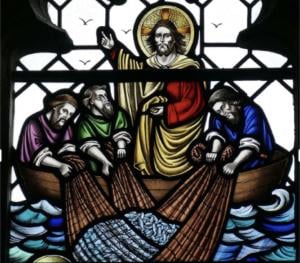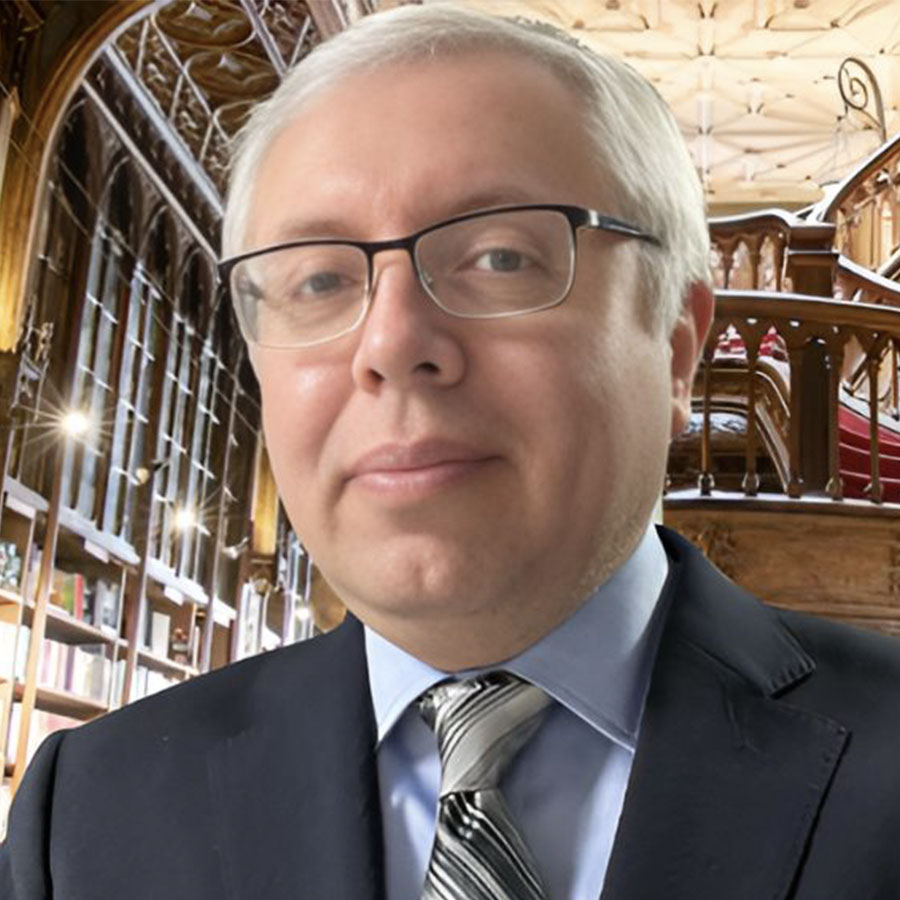
Celebrating this year the Jubilee of Hope, it seems to me that we should look in all the religious events of this year, for signs of hope in the Lord. With this lens, let’s approach the Word of God we hear in Mass this Fifth Sunday in Ordinary Time.
Hope for a prophet with unclean lips
In the First Reading (Isaiah 6:1-2a, 3-8), we find a prophet who feels unworthy of proclaiming the Word of God, because he knows that his lips are impure, and he lives among a people who also have unclean lips. God’s answer is surprising. He doesn’t discard him to look for another. He doesn’t reproach him for the impurity of his lips. Rather, he takes care of it. He sends a seraphim so that, with some tongs, he takes an ember from the altar and with it he touches his lips and cleanses them.
What makes our lips unclean? Everyone can give an honest answer. Vulgarity? Insults? Offenses? Words to discourage someone else? Hurtful words? Blasphemies? Ridiculing others?
To be honest, those of us who dedicate ourselves to an apostolate of evangelization, must feel just like the prophet: unworthy of speaking about God with this kind of lips.
We all should ponder: am I worthy of praying to God with those lips? With those same lips am I worthy of praying God for my needs? With those same lips am I worthy of praising him? And as if that were not enough, am I worthy of receiving communion with those same lips?
Being honest, it is very likely that our answer is “No” for any of the three previous questions. However, we must never lose hope. Like the prophet of the First Reading, God is willing and eager to purify our lips. It is enough for us to approach the sacrament of reconciliation and ask the Lord with a sincere heart to forgive us. In our case, He will not send an angel to cauterize those lips wounded by our bad words with a burning ember. With sweet words of forgiveness He will purify them so that we can continue to praise Him, asking Him in prayer, receiving communion and talking to others about Him.
Hope for a fierce persecutor
In the Second Reading (1 Corinthians 15: 1-11), we hear Paul confessing to the Corinthians that, despite having persecuted the Church of God, and for that reason being unworthy of being called an apostle, he is now counted among them. This, only by the grace of God.
How many times have we ourselves persecuted the Church of God? Perhaps for having been born in the bosom of another faith, someone combatted fiercely for several years the Catholic Church, the Virgin, the saints and the popes, until a ray of light opened their eyes. But there could be also those who, in a moment of frustration, have criticized their parish priest. There could be those who, for lack of understanding of the full picture, have condemned the Pope. There could be those who, out of selfishness, have denied the teachings of the Church at a given time.
Maybe it is not us, but someone we know and care dearly about. Let’s not despair. With the grace of God, they can be converted and even be counted among the apostles.
Hope for an unworthy fisherman
In the Gospel (Luke 5,1:11) – whose text in the Mass is always connected to that of the First Reading – we see Simon, the fisherman, who is stunned by the miraculous fishing that, against all logic, is carried out. It was customary to fish at night, casting a net that would sink at the bottom of the sea. To take it out, the fishermen threw themselves into the water, dived and pulled towards the surface. For that reason, fishing was done near the coast, at a shallow depth. Breaking the canons of fishing, so to speak, Jesus commands Simon and the other fishermen to carry out the work during the day and in deep waters. And they fish what they had never done in their lives!
Simon recognizes the power of Jesus and feels unworthy to be in his presence, “Depart from me, Lord! I am a sinful man”.
However, that does not worry Jesus for a moment. He encourages Simon Peter and assures him, “Do not be afraid; from now on you will be catching men.”
The Lord is not afraid of our human imperfection
Jesus doesn’t like our sins. That’s why he came to redeem us. But they don’t scare him either. If He had to wait to find twelve holy men to form his group of Apostles, his life would have gone waiting in vain. He knows better than anyone that we are imperfect. That is why he was incarnated and dwelled among us, to teach us how to become perfect children of his Father. And in short, part of that process of personal improvement is to leave our nets, leave what absorbs us, what occupies us, what entangles us!, to become his disciples and follow Him.
The Lord is not afraid of our imperfection. Let’s not be afraid of it either. But let’s not fall into the temptation of cynically anchoring ourselves to our flaws. Rather, let’s follow Jesus with the hope that if our lips become impure or our imperfection betrays us, but we stubbornly insist on following him, He will purify us again and again so that we can move forward.
Let us not lose hope, because laid in the Lord, “hope does not disappoint!” (Romans 5:5).














